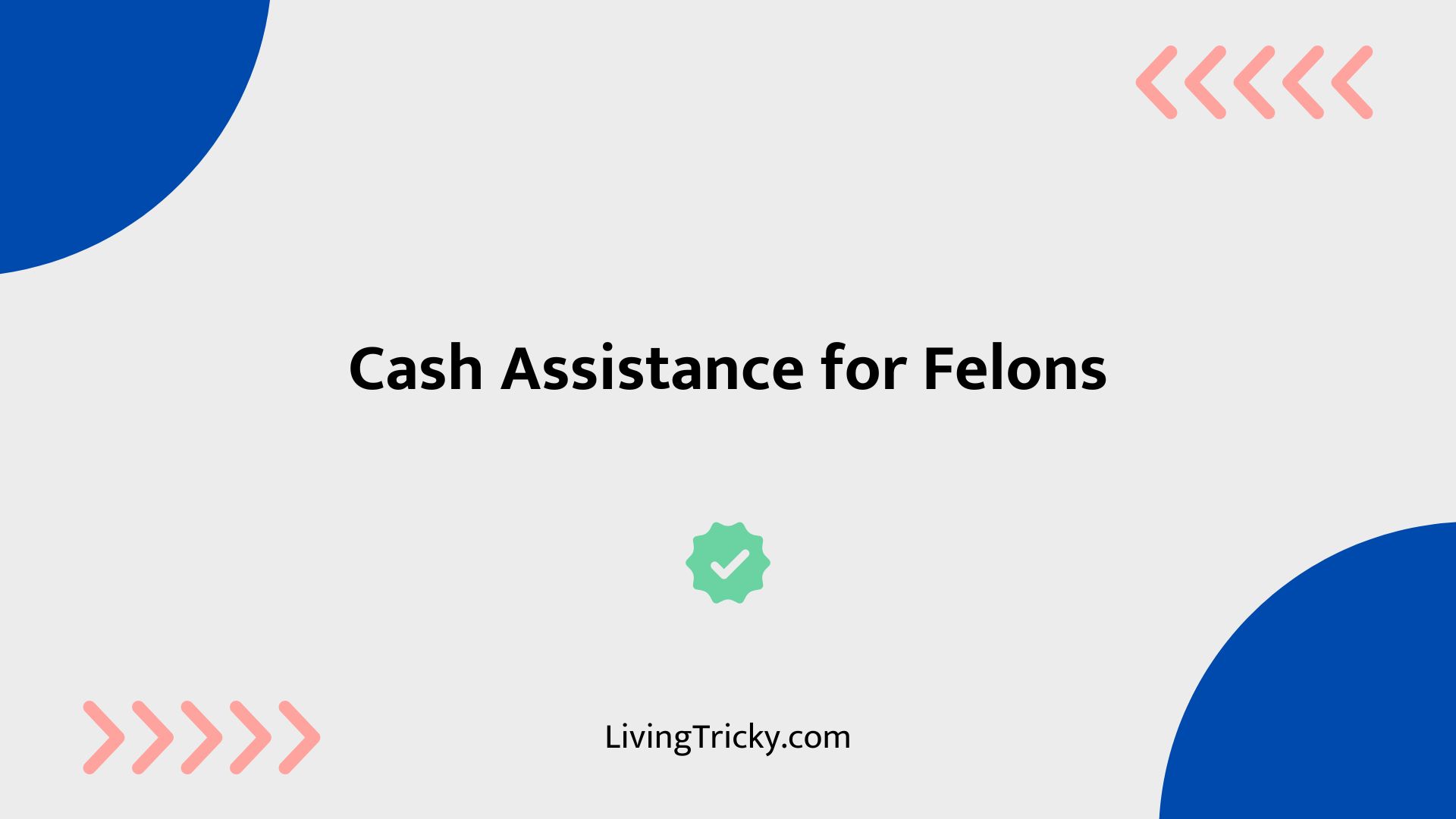Many people believe felons don’t deserve financial support, but cash assistance programs can be essential for their reintegration. These resources help cover basic needs, like food and housing, making it easier for individuals to rebuild their lives. Understanding the types of assistance available and how to apply can make a significant difference. Let’s investigate how these programs impact the journey of reintegration and what options are out there for those in need.

Key Takeaways
- Texas SNAP provides monthly food grants to help felons meet their nutritional needs post-incarceration.
- The Comprehensive Energy Assistance Program (CEAP) offers utility bill assistance to eligible felons.
- Housing assistance options, like the Housing Choice Voucher program, may be available for individuals with felony records.
- Workforce Innovation and Opportunity Act supports felons with job training and educational funding to enhance employability.
- Various organizations, including Goodwill and Defy Ventures, provide mentorship and support for reintegration into society.
Understanding Cash Assistance Programs for Felons
While you’re reintegrating into society after incarceration, understanding cash assistance programs for felons can be important for easing financial burdens.
Programs like Texas SNAP offer grants for food, while the Comprehensive Energy Assistance Program (CEAP) helps with utility bills.
Housing assistance programs evaluate applications from felons on a case-by-case basis, ensuring stable living conditions.
Additionally, the Workforce Innovation and Opportunity Act provides financial assistance through job training and education funding, essential for gaining skills and achieving economic stability.
Various grants also support personal development, including education and business startups, which are significant for long-term self-sufficiency.
Types of Financial Assistance Available
Maneuvering life after incarceration can be challenging, but various types of financial assistance are available to help you regain your footing.
Here are some options you may find beneficial:
- Food Grants: Programs like Texas SNAP provide monthly assistance for groceries.
- Housing Support: Housing Choice Voucher and Public Housing programs consider felons for stable living options.
- Utility Assistance: The Comprehensive Energy Assistance Program (CEAP) helps cover gas and electricity bills.
- Workforce Programs: The Workforce Innovation and Opportunity Act offers training and education grants to improve your job prospects.
Explore these resources to support your journey towards stability.
How to Apply for Assistance
Steering through the application process for assistance can feel overwhelming, but it’s vital to know that you’re not alone.
To apply for financial assistance programs like SNAP, visit your local Texas Health and Human Services office or the YourTexasBenefits website. Verify you meet the eligibility criteria, and gather necessary documentation, including proof of felony status.
For grants, connect with local economic development centers for guidance. If you need housing assistance, apply through the Housing Choice Voucher program or local public housing authorities.
Many organizations offer support services to help you navigate the application process and complete required paperwork.
Resources for Ongoing Support
Finding ongoing support after incarceration is essential for rebuilding your life, and fortunately, many resources are available to help you on this journey.
Consider exploring these options:
- Goodwill Industries and Defy Ventures for job training and mentorship tailored for formerly incarcerated individuals.
- Comprehensive Energy Assistance Program (CEAP) for financial help with utility bills.
- Small Business Development Centers (SBDCs) offering training programs to create business plans and navigate entrepreneurship.
- Workforce Innovation and Opportunity Act programs providing job training and education assistance, along with various funding opportunities to support economic development.
The Impact of Cash Assistance on Reintegration
While reintegrating into society after incarceration can feel overwhelming, cash assistance programs play an essential role in easing this transition. Financial aid, like SNAP and housing vouchers, helps you meet basic needs, reducing financial stress.
With a stable income, you’re less likely to fall into old patterns, lowering recidivism rates. Programs offering utility support can help maintain your living conditions, which is vital for successful reintegration.
Additionally, access to cash assistance encourages you to pursue job training and skills development, enhancing your employability. Ultimately, this support not only benefits you but strengthens the entire community, fostering a healthier society.
Frequently Asked Questions
What Is a Hardship Grant for Felons?
A hardship grant for felons helps you cover essential expenses like rent and food. Eligibility criteria often include income and household size, with support from various organizations offering resources for overcoming stigma and achieving financial literacy.
Can Felons Get Financial Assistance?
Yes, felons can access financial assistance through community resources, reentry programs, and government benefits. They can improve their budgeting skills, seek vocational training, and utilize support networks for employment opportunities and legal assistance in their rehabilitation journey.
Can a Felon Apply for a Grant?
Yes, as a felon, you can apply for grants. Investigate community resources and nonprofit assistance organizations that provide financial support programs. Familiarize yourself with grant eligibility criteria and utilize application process tips to improve your chances.
Can a Convicted Felon Get Housing Assistance?
Yes, you can get housing assistance as a convicted felon. Investigate community resources, public housing options, and transitional housing programs. Check eligibility criteria for housing vouchers and rental assistance to guarantee housing stability.
Conclusion
In summary, cash assistance programs are vital for helping felons rebuild their lives and successfully reintegrate into society. By providing essential support like food, housing, and job training, these resources pave the way for a brighter future. Isn’t it time we recognize the importance of second chances? Accessing these programs can significantly reduce recidivism and foster self-sufficiency, ultimately benefiting both individuals and the community as a whole. Accept the opportunity for change and growth today.